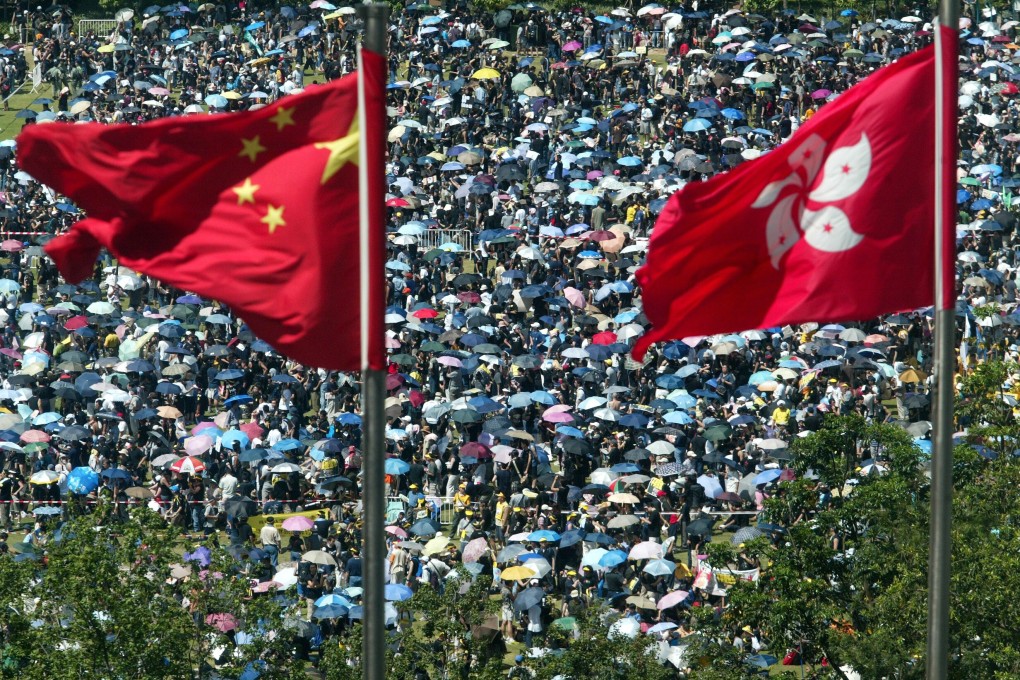Hong Kong protests: as Civil Human Rights Front folds, police and Beijing warn legal troubles far from over
- The Civil Human Rights Front, which has been behind some of the largest protests in city’s history, says it has no one willing to work for its secretariat in the coming year
- The front has been under police investigation since April, with authorities questioning it over its finances and role in a declaration submitted to the UN

The pro-opposition group behind some of Hong Kong’s largest protests announced on Sunday it had disbanded, but police vowed to press ahead with investigating it while Beijing said the outfit should not be spared from the legal consequences of its actions.
Hours after the 19-year-old Civil Human Rights Front issued a statement on its dissolution, the force said it was following up on the group’s breach of the Societies Ordinance.
Police had been investigating the legality of the front’s operations since April, and authorities said the organisation had not provided requested information about its members, activities and finances within a designated time period.
“[The front] has been operating illegally,” the force said. “Police reiterate that an organisation and its members remain criminally liable for the offence committed, regardless of the disbandment of the organisation or the resignation of its members. The force will continue to go after any organisation or anybody who violates the national security law or other Hong Kong legislation.”

01:54
Umbrella group behind Hong Kong’s largest protests, Civil Human Rights Front, disbands
The State Council’s Hong Kong and Macau Affairs Office (HKMAO) accused the front of colluding with foreign forces in staging “colour revolutions”, a reference to protests in the Middle East and eastern Europe that forced governments from power.
“The front realised its behaviour has severely touched the bottom line of the ‘one country, two systems’ principle, violated the national security law and other Hong Kong laws and is currently under investigation by police. It has gone into a cul-de-sac and thus announced it had dissolved in haste,” the office’s spokesman said. “But it will be dreaming if it thinks it could escape legal responsibilities.”